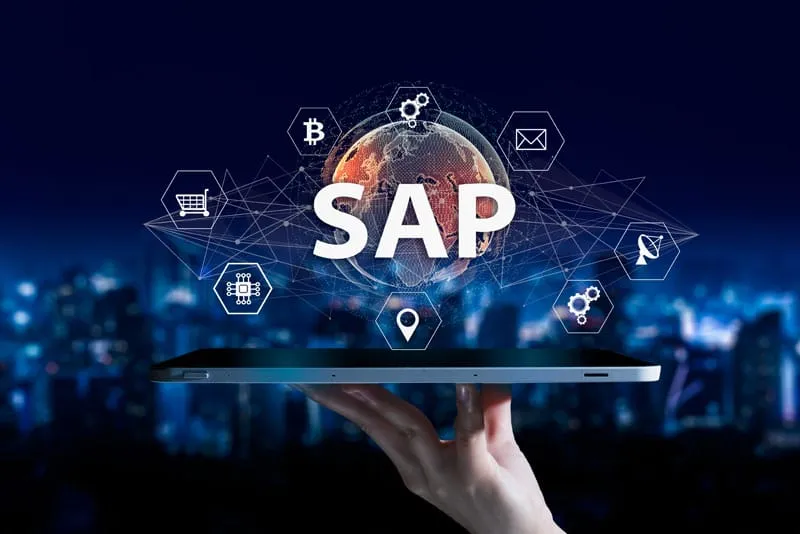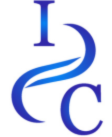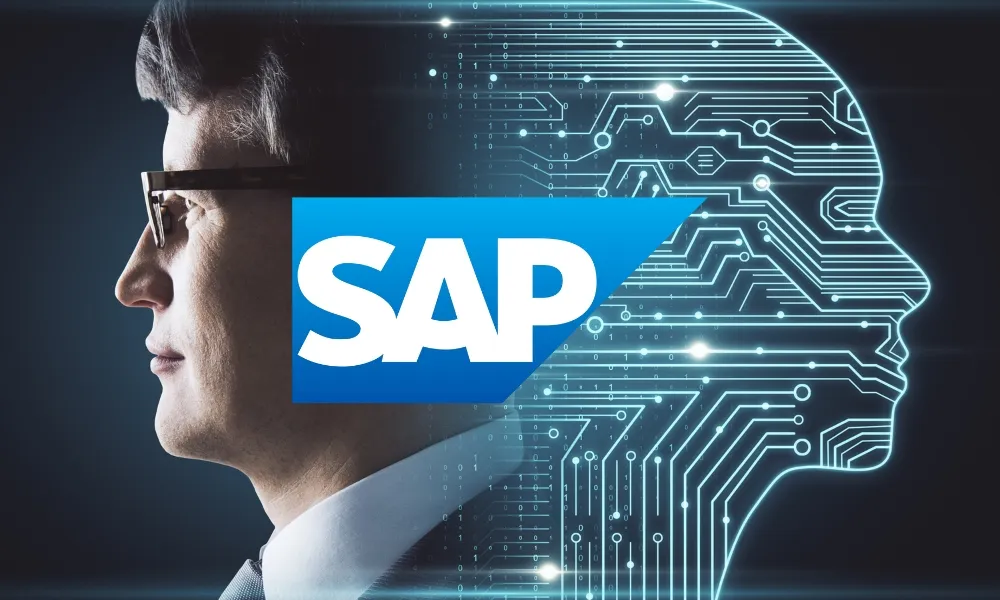Developing SAP skills can help prepare you for your next position at a company that uses enterprise resource planning software in its business operations. Understanding how to use Systems, Applications & Products in your industry can help you get a new job or earn a promotion to a leadership role.
In this article, we explore the fundamentals of Systems, Applications & Products, including what it is and why companies rely on it. Additionally, we delve into the benefits of utilizing SAP and how to enhance your SAP skills. Moreover, we examine the practical applications of Systems, Applications & Products ERP in the workplace, thereby providing a comprehensive understanding of its role in modern business operations.

What is SAP?
Systems Application, or Systems, Applications & Products Software, and Products, is a widely used enterprise resource planning (ERP) software, thereby revolutionizing the way businesses operate. Consequently, SAP creates a centralized system for businesses, enabling every department to access and share common data, thus fostering a better work environment for every employee in the company. Moreover, Systems, Applications & Products is the most-used ERP software on the market, and it contains hundreds of fully integrated modules that cover nearly every aspect of business management. Additionally, this comprehensive suite of modules enables businesses to streamline their operations, leading to increased efficiency and productivity.
What is ERP?
Enterprise resource planning (ERP) is a software system that allows businesses to manage primary functions in one place, thereby increasing efficiency and productivity. Consequently, it streamlines operations, reducing costs and improving decision-making. Moreover, ERP provides a comprehensive platform for managing finance, HR, and supply chain management, which are interconnected. Furthermore, this integrated approach enables businesses to respond quickly to changing market conditions, leading to improved agility. ERP facilitates communication and planning across departments, such as sales, marketing, and procurement. SAP is a software solution under the ERP umbrella.
Types of SAP software
Many versions of Systems, Applications & Products software exist, including previous iterations of SAP R 2 and SAP R 3, which paved the way for modern developments. Additionally, current types of Systems, Applications & Products software include SAP S/4HANA and SAP ERP, which offer enhanced functionality. Moreover, these latest versions provide comprehensive solutions for businesses, building on the successes of their predecessors.
SAP S or 4HANA
SAP S/4HANA is best suited for medium and large enterprises, offering a comprehensive solution for their complex needs. In addition, it provides both analytical and transaction processing capabilities, enabling companies to make informed decisions in real time. Moreover, its real-time analytics capabilities make it an ideal choice for companies in industries such as banking, hospitality, security, and airlines, which require instantaneous data processing. Similarly, these companies can benefit from SAP S/4HANA’s advanced analytics, leading to improved operational efficiency and decision-making.
SAP S or 4HANA Cloud
The SAP S/4HANA Cloud software offers quarterly updates and web browser access, thereby providing flexibility and convenience. Moreover, it features in-memory computing, analytics, and machine learning support, enabling advanced data processing. Additionally, its comprehensive capabilities make it an ideal solution for medium and large enterprises.
SAP Business One
This software can run using SAP HANA and Microsoft SQL. It’s best for organizations with up to 350 employees. With the SAP Business One suite, more than 500 third-party integrations are also available. This makes it easier for businesses to customize Systems, Applications & Products Business One to their specific needs. Finally, Business One has a customizable pricing model to better fit the available configurations.
SAP Business ByDesign
This software is best for mid-market businesses. It’s for organizations with more than 250 employees and less than 1,500 employees. Business ByDesign is especially useful for specific industries, such as manufacturing, wholesale distribution, and the public sector, as it comes with specific functionalities for these industries. The Business ByDesign suite uses a pricing model based on the number of users, which typically allows smaller businesses to pay less than larger ones.
What does SAP do?
SAP collects and processes data from all functions in a business on one platform. It’s essential for many businesses because it allows departments to communicate with each other easily. The success of any organization relies on effective communication and data exchange between its functions, thereby necessitating a robust support system. Consequently, SAP emerges as an effective solution to facilitate seamless communication and data exchange, moreover enhancing overall operational efficiency. Additionally, SAP’s integrated approach enables organizations to streamline their processes, leading to improved productivity and decision-making.
Benefits of SAP software
These are some benefits of Systems, Applications & Products software:
Lower administrative costs
SAP software helps provide the information you can use to reduce interruptions in production, thereby informing the decision-making process. Consequently, this can lead to a reduction in costs associated with administrative duties and inefficiencies. Furthermore, by streamlining operations, Systems, Applications & Products software can help to minimize waste and maximize productivity.
Better data management
SAP software helps you track and understand profit ratios, sales margins, and metrics the company can use to set goals. In addition, this enables the elimination of manual processing, which in turn provides more accurate business data. Moreover, with access to real-time insights, companies can make informed decisions to drive growth and improvement.
Improved transparency
By using this software, you automate the data management process, thereby streamlining operations and reducing the likelihood of errors. Consequently, this can lead to a significant reduction in duplications, meanwhile enabling you to monitor each part of operations more effectively. Furthermore, with automated data management, you can easily track progress, thus making data-driven decisions to optimize performance. Additionally, this can result in increased efficiency, whereas manual processing can lead to inaccuracies. Moreover, automation can help to identify areas for improvement, hence allowing for proactive measures to be taken. Ultimately, this can lead to enhanced productivity and better decision-making.
Secure data
The SAP ERP system has robust functions in place to protect sensitive data, thereby ensuring confidentiality and integrity. Consequently, administrators can easily restrict data access to trusted users through built-in security systems and firewalls, additionally providing an extra layer of protection. Moreover, these security measures enable organizations to maintain compliance with regulatory requirements and prevent unauthorized data breaches. With a Systems, Applications & Products system, you can also easily create data backups.

What are SAP skills?
Developing SAP skills can make you a competitive candidate for companies using ERP software, thereby giving you a hiring advantage. Moreover, experience and proficiency with SAP are often required for certain roles. Additionally, possessing skills in areas such as Systems, Applications & Products configuration, development, and implementation can further enhance your job prospects.
- Utilizing transactions: Being able to use transactions and input data into the Systems, Applications & Products software can give you an advantage when applying for a job that requires you to be able to manage sales.
Reporting: Understanding how to execute reports can provide data that you, your manager, or another department might need. - Accounting: Knowing how to use the accounting modules within the Systems, Applications & Products software can give you an advantage in a finance or accounting job but can also be beneficial to any employee working in a company’s accounting department.
- Recruiting: Understanding the recruiting modules of Systems, Applications & Products software can help human resources better manage candidates and potential employees.
- Management: There are a variety of management modules within Systems, Applications & Products, including customer management, project management, warehouse management, transportation management, and inventory management. Gaining skills in management systems can give you an advantage when applying for a management position.
- Communication: SAP software’s ability to facilitate interdepartmental communication is a key benefit, thereby ensuring a company’s smooth operation. Moreover, demonstrating your understanding of this communication capability can give you a competitive edge in the job market, additionally setting you apart from other applicants.
SAP training and certification
If you want to equip yourself with SAP skills and add an extra achievement to your resume, consider Systems, Applications & Products training and certification. SAP offers training on all its modules and provides more than a hundred SAP certifications. Training and exams do cost money, so start with the certification that most closely aligns with your job goals. Here are a few available SAP certifications:
- Project management
- Spend analysis
- Integrated business planning
- Finance implementation
- Manufacturing implementation
- Sales implementation
- Modeling and data management
- Management Accounting
- Financial Accounting
- Commerce
- System security architect
SAP in the workplace
Many companies worldwide use SAP, so understanding how to use it can give you an advantage when applying for jobs or seeking a promotion. Here are a few popular industries and positions that use SAP software and the modules and capabilities of each:
Human resources management
SAP provides human resources managers with every tool they need to maintain a capable HR department. HR experts can record every piece of data about an employee from application to exit. Here are some of the human resources sub-modules:
- Organization management: This module allows HR experts to create plans for workflow management.
Personnel administration: This module performs the administrative task of recording essential employee information, including hire dates, personnel data, and payroll accounting. - Personnel development: This module qualifies employees and helps an HR manager reduce employee turnover and help employees increase their skills and productivity.
- Time management: This module gives the HR department relevant information about each employee’s attendance, shifts, schedules, and absences.
- Payroll: This module displays information about and processes payments relating to employee wages, benefits, and taxes.
Project management
SAP provides project managers with every tool they need to manage projects from initiation to closure. Here are some of the project management sub-modules.
- A Project Initiation: The initiation module includes everything related to the setup and launch of a project, including project definition, work breakdown structure, network activities, milestones, and project creation.
- The Project Planning: The planning modules include cost planning, revenue planning, material planning, capacity planning, workforce planning, and scheduling.
- Project execution: The execution module includes everything related to monitoring and implementing a project, including goods receipt, goods issue, timesheet entry, service entry, billing, confirmations, and progress analysis.
- Project closure: The closure module includes information and data that relate to period-end closing and project closing.
Warehouse management
SAP equips warehouse managers with everything they need to manage a successful warehouse. Here are some of the extended warehouse management capabilities:
- Inbound processing management: The SAP extended warehouse management module makes inbound processing straightforward with data validation for shipping notifications, acceptance of production receipts, and optimized receipt processing.
- Outbound processing management: The outbound processes module allows warehouse managers to schedule packing and shipping activities, select stock according to attributes, and implement augmented reality picking features.
- Storage and operations management: The storage module gives warehouse managers complete control of the internal process, including cycle counting, physical inventory, stock visibility, and equipment status.
- Cross-functional management features: The extended warehouse management module includes other cross-functional features, such as batch management, serial number management, dock appointment scheduling, traceability processing, and cross-functional analytics.
Customer relationship management
SAP provides a customer relationship management system that allows CRM experts to automate and integrate every customer activity, including sales, marketing, customer service, and commerce. Here are some functionalities of the customer relationship management module:
- Sales: The sales CRM system provides a better customer experience by including features like sales strategy content recommendations, AI-powered guided selling, individualized quotes, sales negotiation workspaces, real-time quota and plan modeling, dispute resolution management platforms, and revenue, billing, and invoice management.
- Marketing: The marketing CRM system gives marketers the advantage by including features like unified customer profile access, customer behavior insights, seamless customer experience creation, marketing campaign management, team collaboration, multi-dimensional analysis, and customer identification and targeting.
- Customer service: The customer service CRM system provides customer service representatives and managers with the tools they need to deliver exceptional customer service. Some features include customer insights, service interaction history, issue diagnosis optimization, on-demand network connection, AI-assisted conversations, and conversation transferring.
- Commerce: The commerce CRM system gives employees a comprehensive experience with many commerce processes, including order management, component integration, industry-specific capabilities, transparent commerce processes, and platform extension.
Finance management and accounting
SAP provides a comprehensive suite of financial management and accounting systems that give companies the tools they need to keep track of their finances. Here are a few of the finance management systems:
- Financial planning and analysis: This system helps finance experts with strategic planning, forecasting, budgeting, performance management, analytics, and reporting.
- Accounting and tax management: This system assists with financial accounting and reconciliation, reporting, disclosure, regulation compliance, and closing process accounting.
- Treasury and cash management: This system includes features like corporate treasury management, cash management, cash flow forecasting, debt management, risk management, and investment management.
- Accounts payable and receivable: This system provides modules that assist with credit evaluation, risk management, collections, dispute management, billing, and invoice management.

Implementing SAP software
Here’s more information on implementing SAP software:
Pre-implementation planning
Before implementing SAP software, it’s a good idea to create an implementation plan. Consider how leadership, in-house experts, and managers can contribute to the process.
Choosing the right software
Speak with an SAP or ERP expert to help you determine which software is best for the organization. They can help you ensure the software supports the business processes.
Training and support for SAP users
Plan to train both project and IT teams on the new software. Consider ongoing training to help new users understand the software as they join the organization.
Challenges of SAP implementation
One challenge you may experience when implementing SAP software is underestimating how long it takes to implement. Consider over-estimating when determining your schedule for going live with SAP software. Incomplete, inaccurate, and disorganized data can also be challenging when implementing a new SAP software. Be sure to cleanse the data before integrating SAP software.


1 thought on “SAP Software: How To Use SAP ERP in the Workplace”